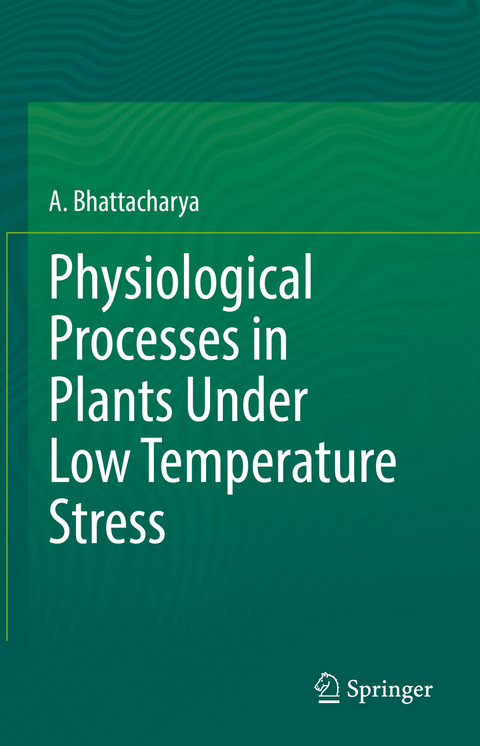
Physiological Processes in Plants Under Low Temperature Stress
Springer Verlag, Singapore
978-981-16-9036-5 (ISBN)
Amitav Bhattacharya, Ex Principal Scientist (Plant Physiology), Indian Institute of Pulses Research (IIPR), Kanpur, India. He earned his Master’s degree in Botany with specialization in Plant Physiology. He got his Ph.D. degree for Indian Agricultural Research Institute, New Delhi, India in Plant Physiology, He served IIPR for more than 35 years and retired as Principal Scientist and during his service period he was actively engaged in physiological research on grain legumes both in field and in laboratory. He also looked after the coordinated physiological research being conducted on different grain legume crops at different centres, spread across India. He has already published several books.
Chapter 1. Effect of low temperature stress on germination, growth and phenology of plants: A review.- Chapter 2. Plant water relationship under low temperature stress: A review.- Chapter 3. Effect of low temperature stress on photosynthesis and allied traits: A review.- Chapter 4. Low temperature stress and nitrogen metabolism in plants: A review.- Chapter 5. Lipid metabolism in plants under low temperature stress.- Chapter 6. Plant growth hormones in plants under low temperature stress: A review.- Chapter 7. Effect of low temperature on dry matter, partitioning and seed yield: A review.
| Erscheinungsdatum | 04.03.2022 |
|---|---|
| Zusatzinfo | 31 Illustrations, black and white; XIX, 734 p. 31 illus. |
| Verlagsort | Singapore |
| Sprache | englisch |
| Maße | 155 x 235 mm |
| Themenwelt | Naturwissenschaften ► Biologie ► Botanik |
| Weitere Fachgebiete ► Land- / Forstwirtschaft / Fischerei | |
| Schlagworte | Dry matter accumulation • Germination • growth hormones • Lipid metabolism • Nitrogen metabolism • Photosynthesis and Allied Traits • Plant-Water Relationship |
| ISBN-10 | 981-16-9036-7 / 9811690367 |
| ISBN-13 | 978-981-16-9036-5 / 9789811690365 |
| Zustand | Neuware |
| Haben Sie eine Frage zum Produkt? |
aus dem Bereich


